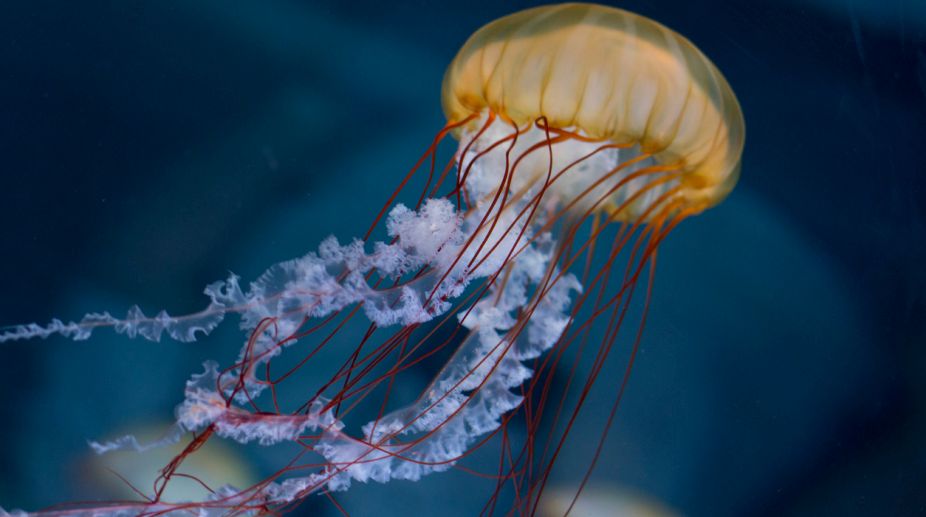‘Ladki Bahin’ scheme: Maha govt deposits Rs 999cr in bank accounts of 1.13 crore women
The beneficiaries thanked the Chief Minister for the state government's initiative.

Representational Image (Photo: Getty Images)
With around 30 per cent of its funding coming from non-CSIR sources, Goa-headquartered National Institute of Oceanography (NIO) is hoping to become more self reliant in the next financial year.
In a major innovative programme, the world-renowned science institute is researching how sea weeds or other underground flora and fauna can be used for the betterment of mankind and to explore whether they can be used as nutrition, or a drug or as a cosmetic product.
Advertisement
“The NIO is relying on the funding made available from CSIR (Council of Scientific & Industrial Research), which the parent body governing us. But we also get the funds from other sources, including private bodies, to the tune of 30 per cent,” CSIR-NIO Director Sunil Kumar Singh told PTI recently.
Advertisement
He said the CSIR-NIO was executing projects for other government organisations like the Ministry of Earth Sciences (MOES), Ministry of Environment and Forest and the Directorate of BioTechnology (DBT) besides providing service to the private industries.
Singh said the NIO wanted to increase this share of 30 per cent revenue collected from the non-CSIR organisations so that the institute becomes self-reliant.
“The budget of CSIR-NIO is Rs 100-120 crore annually of which Rs 30-40 crore is generated from the non-CSIR projects,” he added.
The NIO has also been associated with the Oil and Natural Gas Commission and private firms like Reliance and Adani for which it is undertaking offshore survey to locate petroleum and hydro-carbon, besides laying underwater pipeline for their projects.
The CSIR-NIO has also been doing a survey for the power grid, which also adds to the revenue collected by the science institute.
Singh said the revenue generated from the non-CSIR bodies cannot be relied upon as “sometimes some year, NIO gets a good project but for some year, it (revenue) goes down”.
“We would like to get more and more of non-CSIR fundings so that there is a self-reliance, but we have not set any such target to earn the funding. We have to keep the lower limit at at least 30 per cent to get the funding,” he added.
Singh said the NIO wanted to strengthen the existing facilities as well as to expand the research programme.
“Oceanographic research is more towards understanding the processes and it is towards the basic science,” the CSIR-NIO director said.
He said the stress would be on utilising the research benefit of research for the societal benefit.
Singh said one of big programmes the NIO was planning to undertake was the poly-metallic nodule programme.
“We have already surveyed and exploratory work is already done. We have identified the areas where we can do mining. This is one area where we would like to strengthen so that mining is possible as soon as it can be,” Singh said.
In one of its most innovative projects, the CSIR-NIO is also researching how sea weeds or other underground flora and fauna can be used for the betterment of mankind.
“Other area in which CSIR-NIO would be very much trying to push is about converting sea weeds and other flora and fauna for the benefit of mankind, whether they can be used as a nutrition, or drug or as a cosmetic product,” he said.
The director said the extensive research was going on this aspect with breakthrough is being achieved in one of the projects.
“Recently, we have transferred one technology to a private firm in which our scientists were able to get some bacteria out of the ocean which can be used as a sunscreen to protect the skin from ultra violet rays,” he said.
“These bacterias were on the sponges. We have given the technology to a private company which will commercially explore the research and see how they can take it further.
This was found off the Cochin area,” he added.
The researchers are also working on extracting nutrition from the ocean which could be of enormous potential.
“Lot of food colour is required for the people. Sea weed could be a source for food colour. We are exploring the possibility whether it can be exploited at industrial scale,” Singh stated.
The CSIR-NIO is also working in the field of gas-hydrates.
“We have been working on this project for some time and we have explored some area in the Krishna Godavari basin where there is potential for gas hydrate. The challenge is how to extract them. We will have to do a lot of technology enhancement for that so that these gas hydrates can be extracted,” he added.
Advertisement